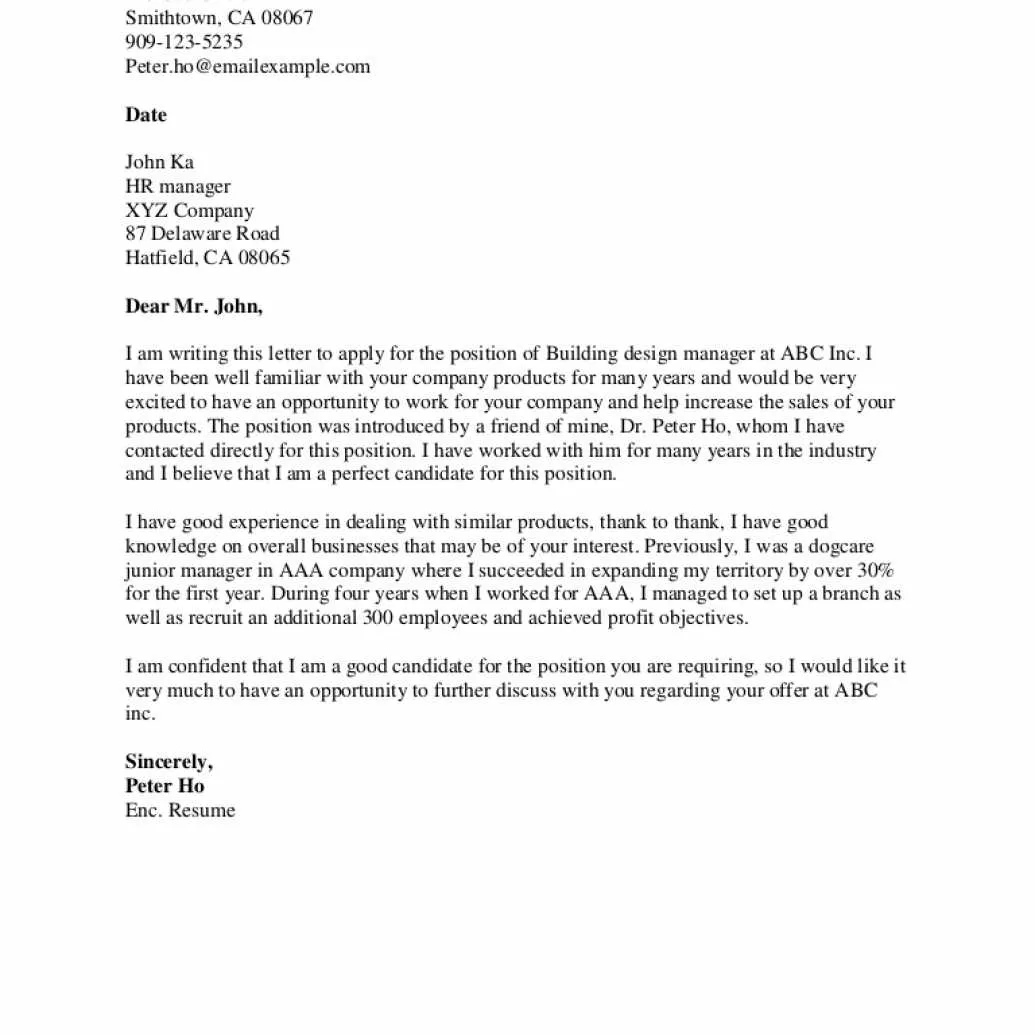What is an Accounting Internship Cover Letter?
An accounting internship cover letter is a crucial document that accompanies your resume when applying for an accounting internship. It serves as your introduction to the hiring manager, providing an opportunity to highlight your skills, experiences, and passion for accounting. Unlike a resume, which provides a factual overview of your qualifications, a cover letter allows you to express your personality, explain your motivations, and demonstrate why you are the ideal candidate for the specific internship. It’s your chance to make a strong first impression and persuade the employer to read your resume carefully. A well-crafted cover letter can significantly increase your chances of landing an interview and securing an accounting internship, which is vital for kickstarting your career in this field.
Why You Need an Accounting Internship Cover Letter
A cover letter is essential for an accounting internship because it allows you to personalize your application and show genuine interest in the position and the company. It’s an opportunity to address the specific requirements of the internship, explain how your skills align with their needs, and demonstrate your enthusiasm for the role. Without a cover letter, your application might seem generic, and you risk being overlooked by the hiring manager. A cover letter allows you to connect with the recruiter on a more personal level, expressing your career goals, and explaining how the internship fits into your long-term plans. Furthermore, a cover letter gives you an opportunity to showcase your communication skills, which are highly valued in the accounting profession.
Key Components of a Winning Cover Letter
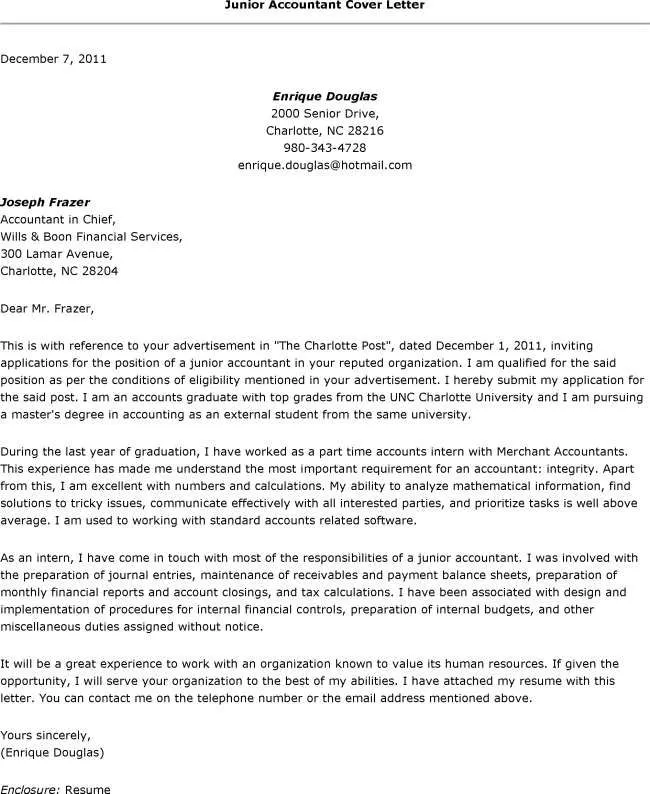
A winning cover letter comprises several key components that work together to make a strong impression. These include your contact information, the hiring manager’s details, a professional greeting, a compelling opening paragraph, a section highlighting your relevant skills and experiences, a demonstration of your passion for accounting, a strong closing paragraph, and a clear call to action. Each section of the cover letter must be carefully crafted to showcase your qualifications and enthusiasm. It’s not just about listing your skills; it’s about demonstrating how you can contribute to the company’s success. By paying close attention to these components, you’ll create a cover letter that grabs the attention of the hiring manager and increases your chances of securing an interview.
Your Contact Information and the Date
At the top of your cover letter, you should include your contact information, such as your full name, address, phone number, and email address. This information should be clearly presented and easily accessible. Following your contact information, include the date on which you are submitting the application. The date is essential for formal communication and helps the hiring manager understand when the letter was written. Ensure your email address is professional and appropriate. Avoid using nicknames or casual email addresses. Proper formatting and accuracy are essential for this section, making it easy for the hiring manager to reach you.
The Hiring Manager’s Details
Whenever possible, address your cover letter to a specific person. Research the company and find the name of the hiring manager or the person responsible for reviewing applications. This shows that you have taken the initiative to learn more about the organization. If you cannot find a specific name, you can use a generic salutation such as “Dear Hiring Manager.” Including the hiring manager’s name makes your cover letter more personal and demonstrates your attention to detail. Include their title and the company’s address below the date. If you are unable to find the hiring manager’s name, ensure that you still address the letter with a professional and courteous salutation.
Professional Greeting
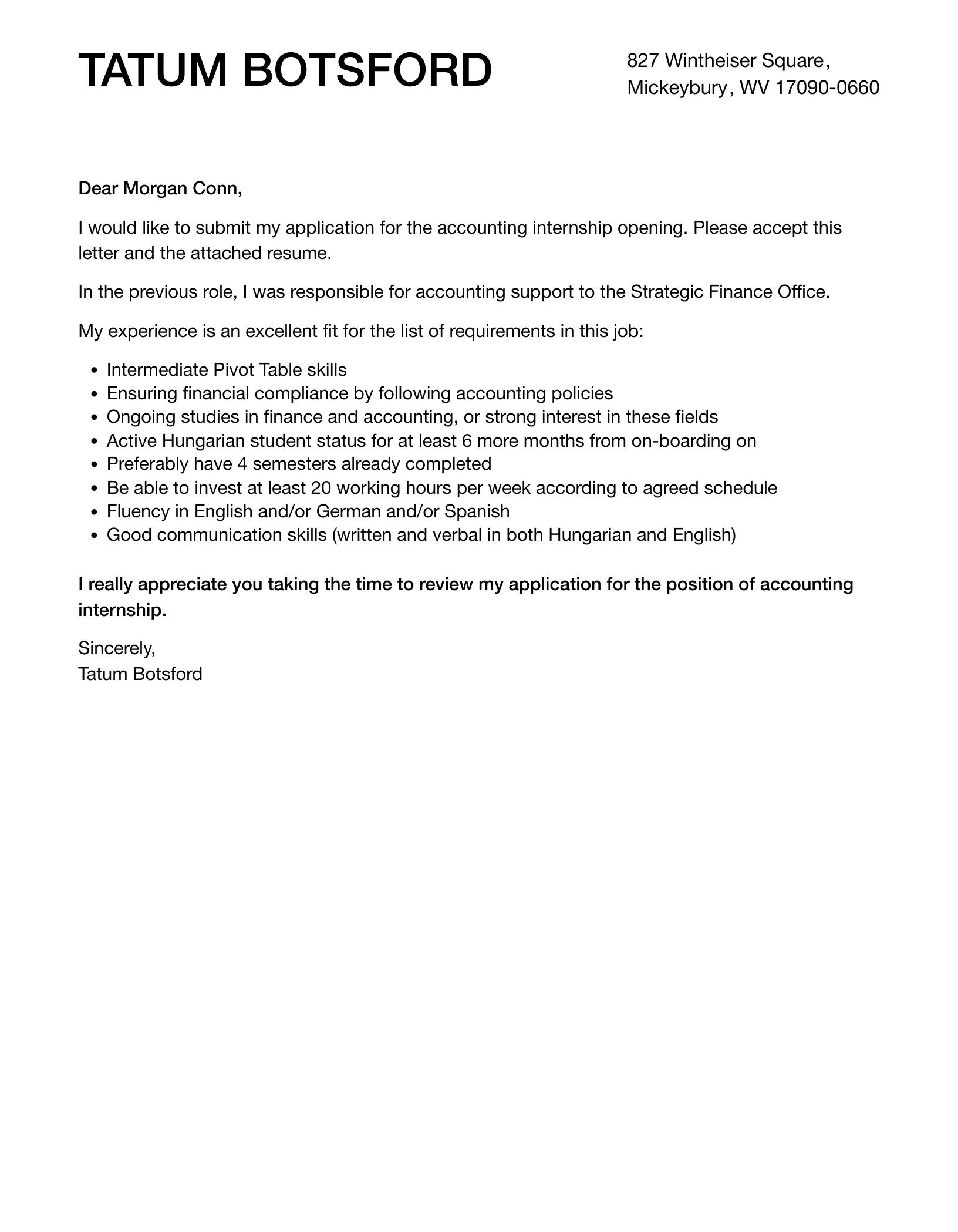
Begin your cover letter with a professional greeting. The most common and appropriate greeting is “Dear Mr./Ms./Mx. [Last Name],” using the hiring manager’s last name. If you don’t know the hiring manager’s name, use “Dear Hiring Manager” or “Dear [Department Name] Team.” Avoid informal greetings like “Hi” or “Hello.” The greeting sets the tone for the entire letter, and a professional start will help you make a positive first impression. Always ensure that you spell the hiring manager’s name correctly, and use the correct title (Mr., Ms., Mx.) to show respect and professionalism. This small detail can significantly impact how the hiring manager perceives your attention to detail and your overall professionalism.
Opening Paragraph Crafting
The opening paragraph should grab the reader’s attention and immediately state the purpose of your letter. Clearly mention the specific accounting internship position you’re applying for and where you found the job posting. Briefly explain why you’re interested in the role and the company. In one or two sentences, highlight your most relevant skill or experience. Keep it concise and engaging. Avoid generic statements; instead, show genuine interest in the internship and its responsibilities. This paragraph sets the stage for the rest of your letter, so make sure it’s well-written and reflects your enthusiasm for the opportunity. A strong opening sets the tone and encourages the hiring manager to read further.
Highlighting Your Skills and Experiences
This section is the heart of your cover letter. Detail your relevant skills and experiences, specifically those that align with the internship’s requirements. Provide specific examples of your accomplishments. Use action verbs to describe your responsibilities and results (e.g., “Managed,” “Analyzed,” “Prepared”). Quantify your achievements whenever possible. For example, instead of saying “Improved efficiency,” state “Improved efficiency by 15% by implementing…” Tailor this section to the specific internship and company. Highlight skills that are relevant to the role, such as proficiency in accounting software, analytical skills, attention to detail, or strong communication skills. Emphasize how your skills make you a strong candidate for the accounting internship.
Tailoring Your Cover Letter
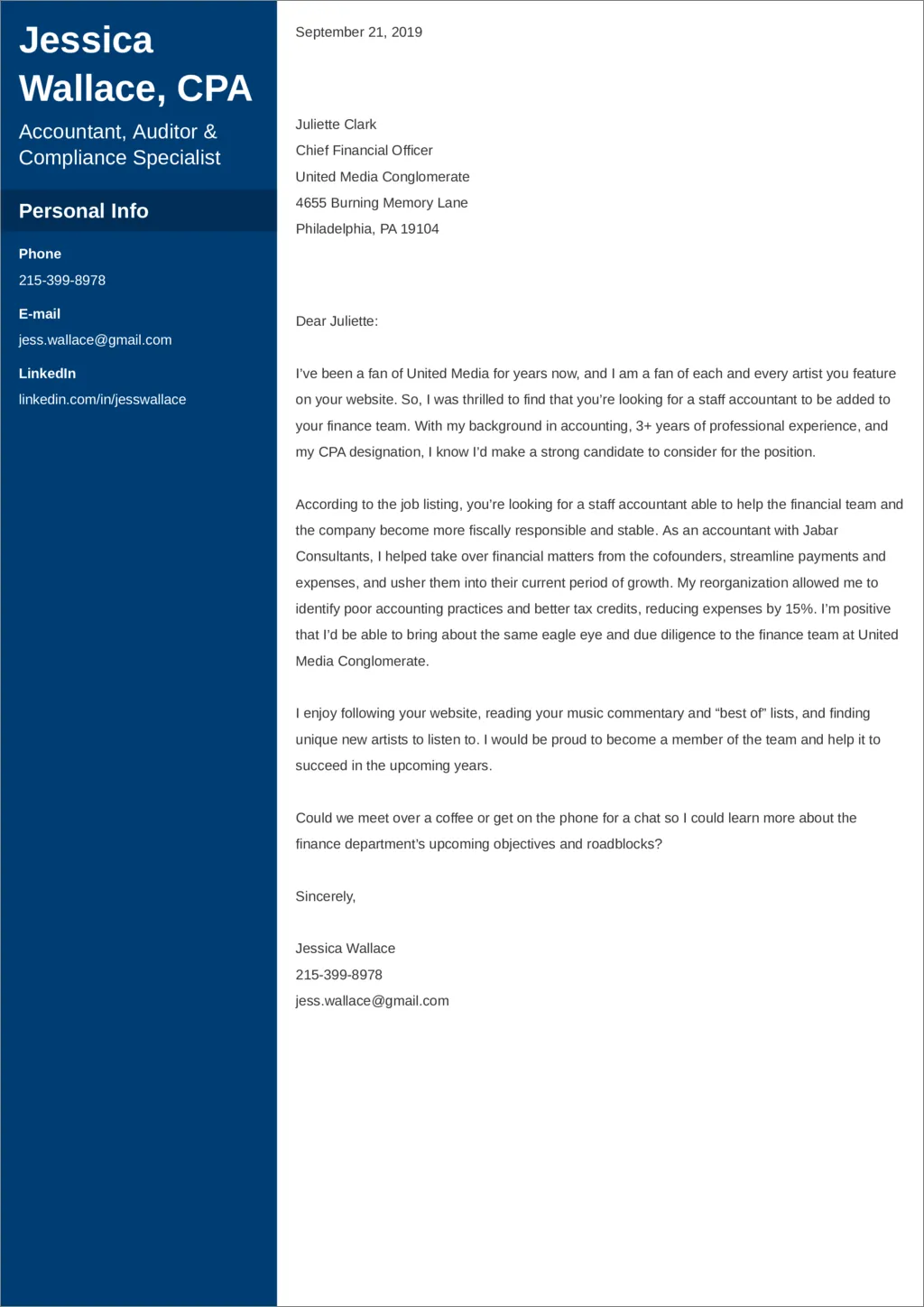
Always customize your cover letter for each internship application. Generic cover letters are easily recognizable and often dismissed. Research the company and the specific internship role to understand its requirements and expectations. Use the job description as your guide, and address the key skills and qualifications they are seeking. Show the hiring manager how your skills and experiences specifically match the position’s requirements. Refer to the company’s mission, values, and recent projects. Demonstrate that you understand the company’s culture and what makes them unique. Tailoring your letter shows that you are genuinely interested in the opportunity and have taken the time to learn about the company.
Quantifying Achievements
Use numbers and data to demonstrate the impact of your skills and experiences. Instead of saying you’re good at something, provide concrete examples. For instance, if you improved efficiency, mention the percentage of improvement. If you managed a project, specify the budget and the number of people involved. Quantifiable achievements provide a clear and measurable understanding of your abilities. This helps the hiring manager assess your capabilities more effectively. Quantifying your accomplishments also adds credibility to your claims and makes your cover letter more persuasive. Where possible, use metrics to show your impact. This detail sets you apart from other applicants who may not provide specific examples.
Demonstrating Your Passion for Accounting
Express your genuine interest and passion for accounting. Explain why you are drawn to the field, what excites you about accounting, and how the internship aligns with your career goals. Mention any specific aspects of accounting that interest you, such as financial analysis, auditing, or tax accounting. Discuss your long-term career aspirations and how the internship can help you achieve them. This demonstrates your commitment and enthusiasm for the role and the company. Share specific reasons why you are interested in the company. This may be because of its reputation, its innovative approach to business, or its commitment to its employees. Expressing your passion helps the hiring manager understand your motivation and dedication.
Closing Paragraph
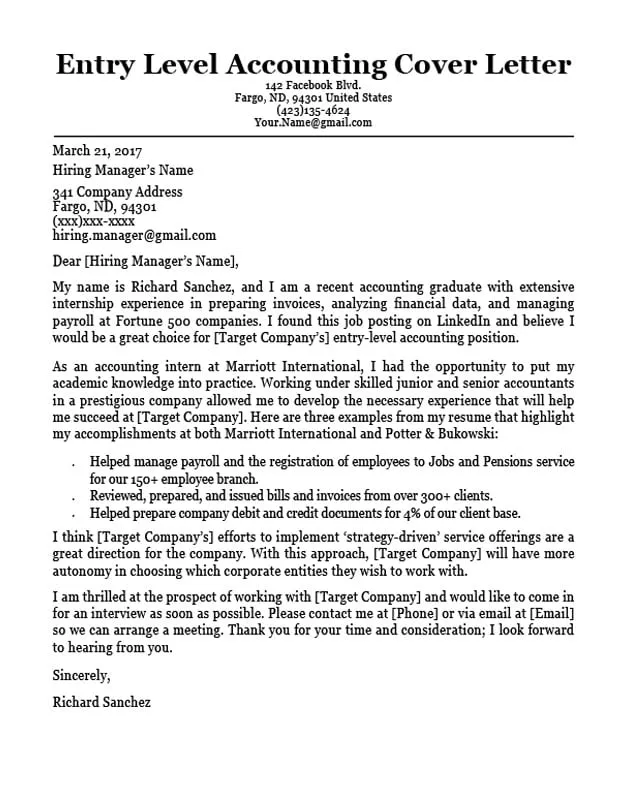
Your closing paragraph should reiterate your interest in the internship and summarize your key qualifications. Reiterate your enthusiasm for the opportunity and the company. This is also the place to express your appreciation for the hiring manager’s time and consideration. Keep it concise and positive. It should leave a lasting impression. This paragraph should re-emphasize why you’re a great fit for the role. Avoid repeating information from other sections; instead, provide a strong, memorable conclusion. Make sure your closing paragraph confirms that you are a serious and qualified candidate. Expressing gratitude shows professionalism and courtesy.
Expressing Gratitude and Call to Action
Thank the hiring manager for considering your application. Then, include a call to action. The call to action encourages the hiring manager to take the next step, such as contacting you for an interview. Clearly state your availability for an interview and how they can reach you (e.g., email, phone). Make it easy for the hiring manager to respond to your application. Make the call to action specific and direct. A well-crafted call to action ensures that the hiring manager knows what you expect. A professional and respectful closing will leave a positive impression. By doing this, you actively guide the hiring manager towards scheduling an interview.
Formatting Your Cover Letter
Proper formatting is essential for a professional cover letter. Use standard business letter format. Keep the letter concise and easy to read. Use a clear and legible font (e.g., Times New Roman, Arial, Calibri) in a size between 10 and 12 points. Set margins to one inch on all sides. Use single spacing within paragraphs and double spacing between paragraphs. Align the text to the left, and avoid justifying the text. Use a clear and organized layout. Well-formatted documents are easier to read and demonstrate your attention to detail. This makes a positive impression on the hiring manager. Make sure the spacing is consistent and the text is well-organized to show a professional approach.
Font and Layout
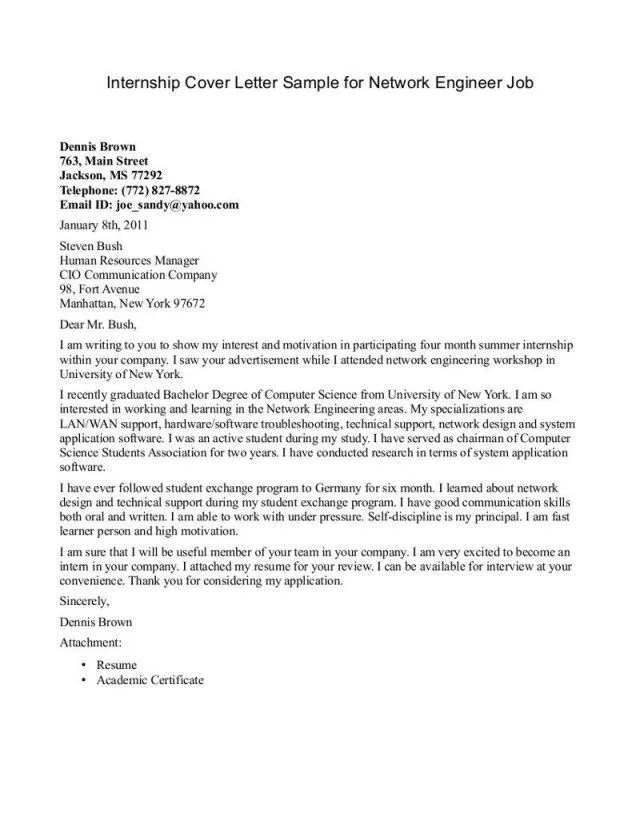
Choose a professional font, such as Times New Roman, Arial, or Calibri. These fonts are widely recognized and easy to read. Use a font size between 10 and 12 points. Ensure your font choice is consistent throughout the document. The layout should be clean and uncluttered. Use white space effectively to improve readability. Avoid using excessive bolding, italics, or underlining. Use the proper business letter format, including your contact information, the date, the hiring manager’s details, a salutation, body paragraphs, and a closing. The goal is to create a polished and professional document. A well-formatted cover letter demonstrates your attention to detail and organizational skills, which are valuable in accounting.
Proofreading and Editing
Before submitting your cover letter, proofread it carefully for any errors. Check for grammar, spelling, and punctuation mistakes. Errors can make your application seem unprofessional and can detract from your qualifications. It’s essential to have a polished and error-free document. Read the letter aloud, as this can help you catch mistakes. Use spell-check and grammar-check tools, but don’t rely on them entirely. Ask a friend, family member, or career counselor to review your cover letter for you. Another pair of eyes can often spot errors that you might have missed. Ensure that your cover letter is perfect before sending it to the hiring manager.
Common Mistakes to Avoid
Avoid common mistakes that can undermine your application. These include grammatical errors, generic content, and lack of personalization. Do not send the same cover letter to every job application; personalize it to fit each role. Do not use slang, jargon, or overly casual language. Avoid exaggerating your skills or experience. Be honest and accurate in your descriptions. Make sure the information in your cover letter aligns with the information in your resume. Avoid any negative comments about previous employers or experiences. By avoiding these common mistakes, you will significantly improve your chances of making a positive impression and securing an interview.
Grammar and Spelling Errors
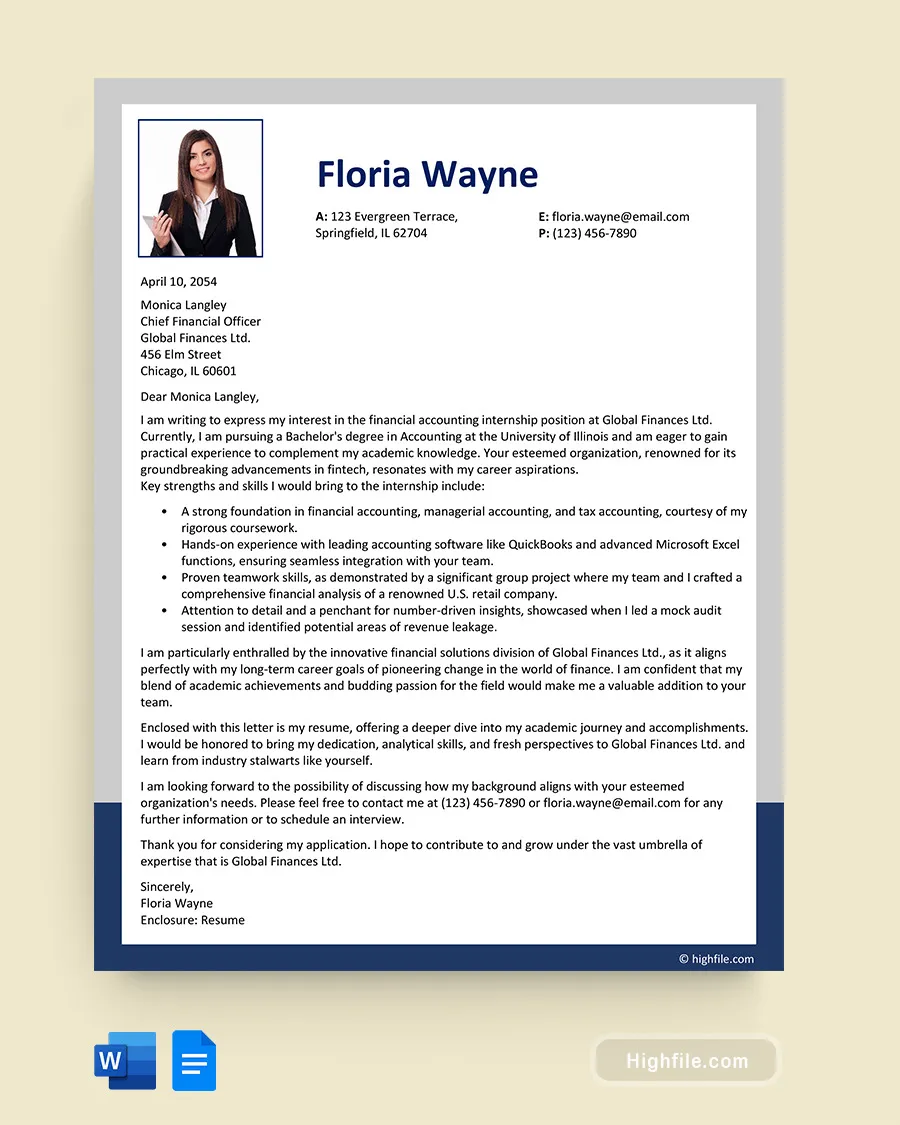
Carefully proofread your cover letter for any grammar and spelling errors. These errors can create a negative impression and show a lack of attention to detail. Use grammar-checking tools and spell-checking software, but review the results carefully. Avoid common mistakes like using “there,” “their,” and “they’re” incorrectly. Ensure correct punctuation, including commas, periods, and apostrophes. These errors detract from your professionalism. Having the cover letter reviewed by someone else is always a good idea. Make sure everything is perfectly clear before you submit your application. Proper grammar and spelling are essential for portraying a professional image and demonstrating your attention to detail.
Generic Content
Avoid generic content and template phrases that don’t relate to the specific internship. The hiring manager wants to see that you have genuinely tailored the letter for their position. Avoid using the same cover letter for every application. Personalize the content based on the specific job description and the company. Show your knowledge of the company and how your skills and experiences align with their needs. A generic cover letter does not demonstrate your interest in the role or the company. Demonstrate genuine enthusiasm and tailor your letter to the specific requirements of the internship. Show that you have spent time researching the position and the company. Customized content demonstrates that you have genuine interest in the position.
Examples of Effective Cover Letters
Review examples of well-written cover letters to learn what makes them effective. You can find many samples online. Notice how the writers structure their letters, highlight their skills, and express their enthusiasm. Pay attention to the language, tone, and formatting. Study how others have demonstrated their value as a candidate. Analyze the structure and wording of successful cover letters. Tailor your cover letter using what you learned from these examples, but remember to maintain your own unique voice. This will help you to craft a compelling cover letter that will catch the attention of potential employers. Examples provide valuable insights for writing your own cover letter.
Sample Cover Letter 1
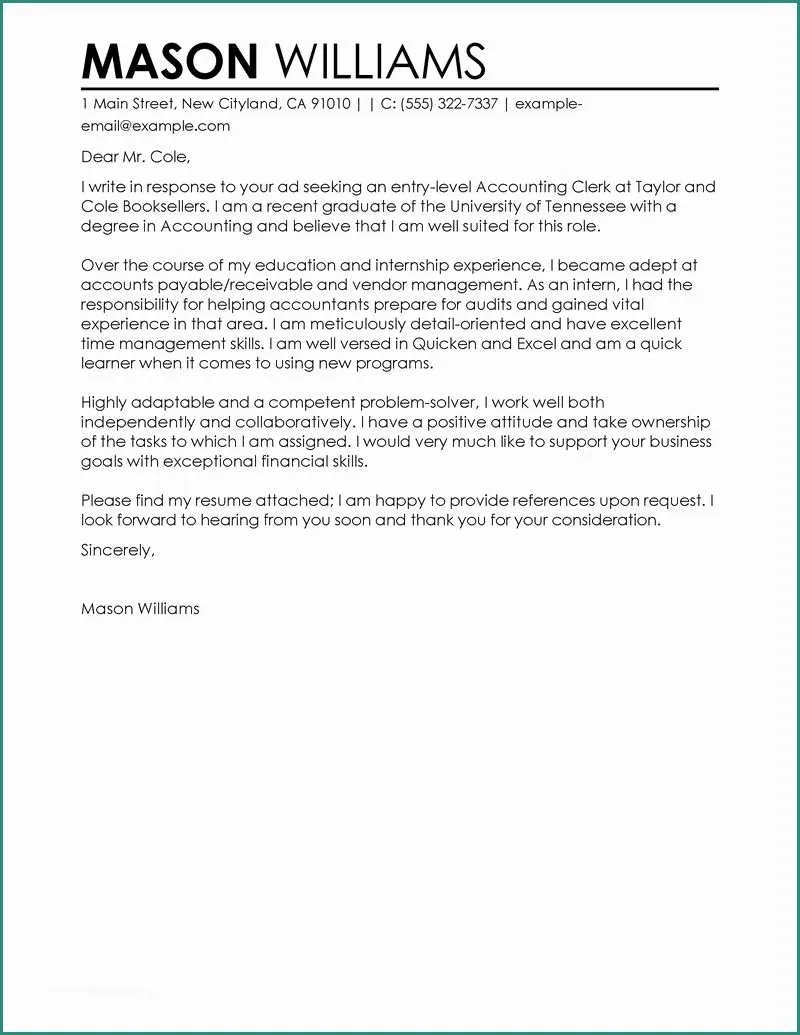
Include an example of a well-written accounting internship cover letter. This sample should cover the essential components discussed earlier, such as the opening paragraph, skills and experiences, and the call to action. It should reflect a strong candidate who is genuinely enthusiastic about the opportunity. The sample provides a concrete example of how to format and structure your cover letter. Make sure the sample demonstrates excellent writing, organization, and attention to detail. By studying this sample, applicants can create their cover letters effectively.
Sample Cover Letter 2
Provide a second sample cover letter to show different styles and approaches. This sample should provide a different tone. Compare both samples to see how different candidates address various skills. This allows applicants to understand how they can make their cover letter unique. This will further guide applicants in writing their cover letter. Remember, the more diverse the examples, the better. This will help applicants understand how to address different positions.
Where to Find Accounting Internship Opportunities
Identify where to find accounting internship opportunities, such as job boards, company websites, and networking events. Job boards like Indeed, LinkedIn, and Glassdoor are great places to find internships. University career services departments often have lists of available internships. Consider attending industry events and career fairs to meet recruiters and hiring managers. Networking is another valuable method to discover opportunities. Build professional relationships and seek advice from those already working in the field. Actively search and apply for accounting internships on various platforms. Build a diverse and targeted job search strategy to increase your chances of success.
